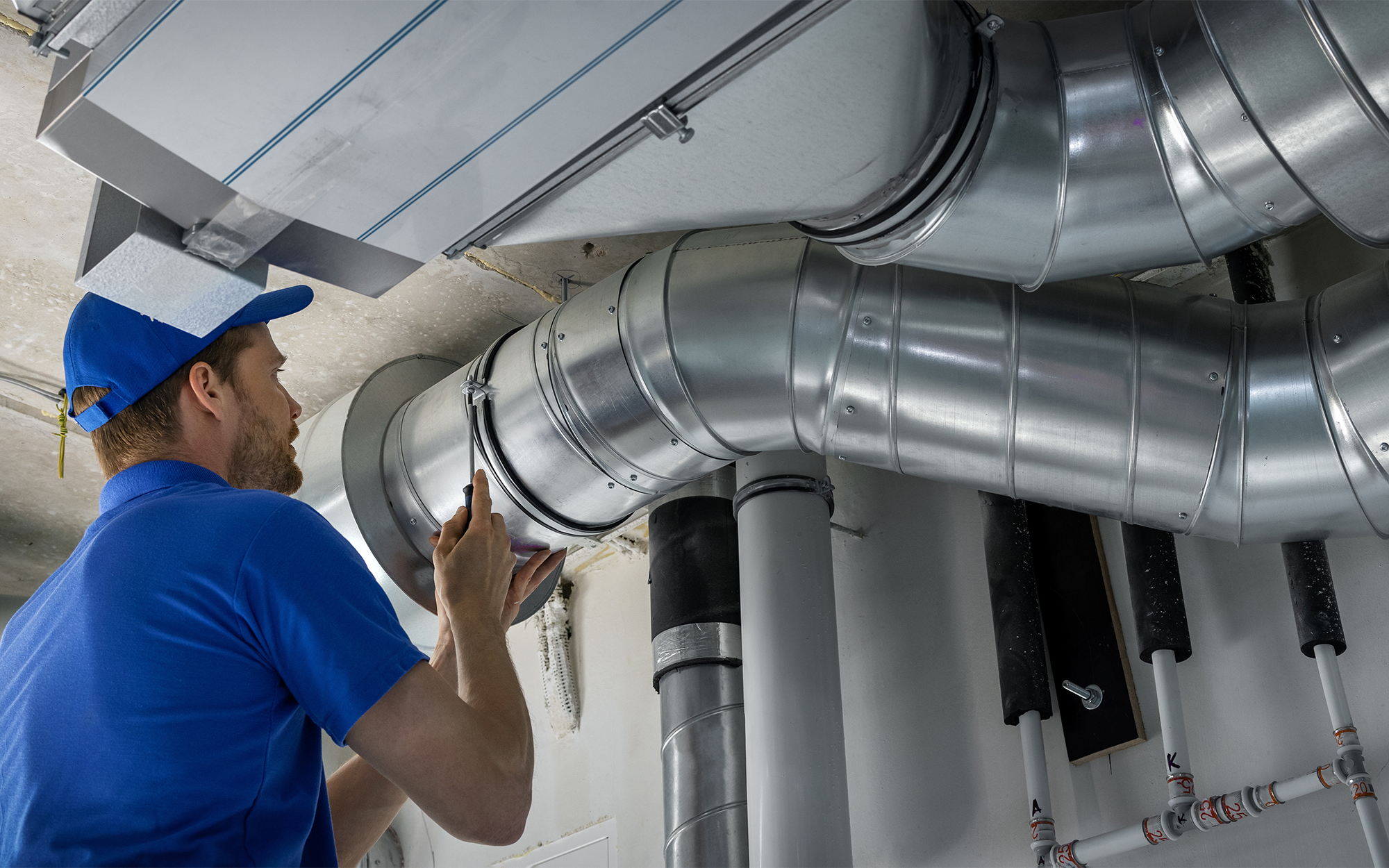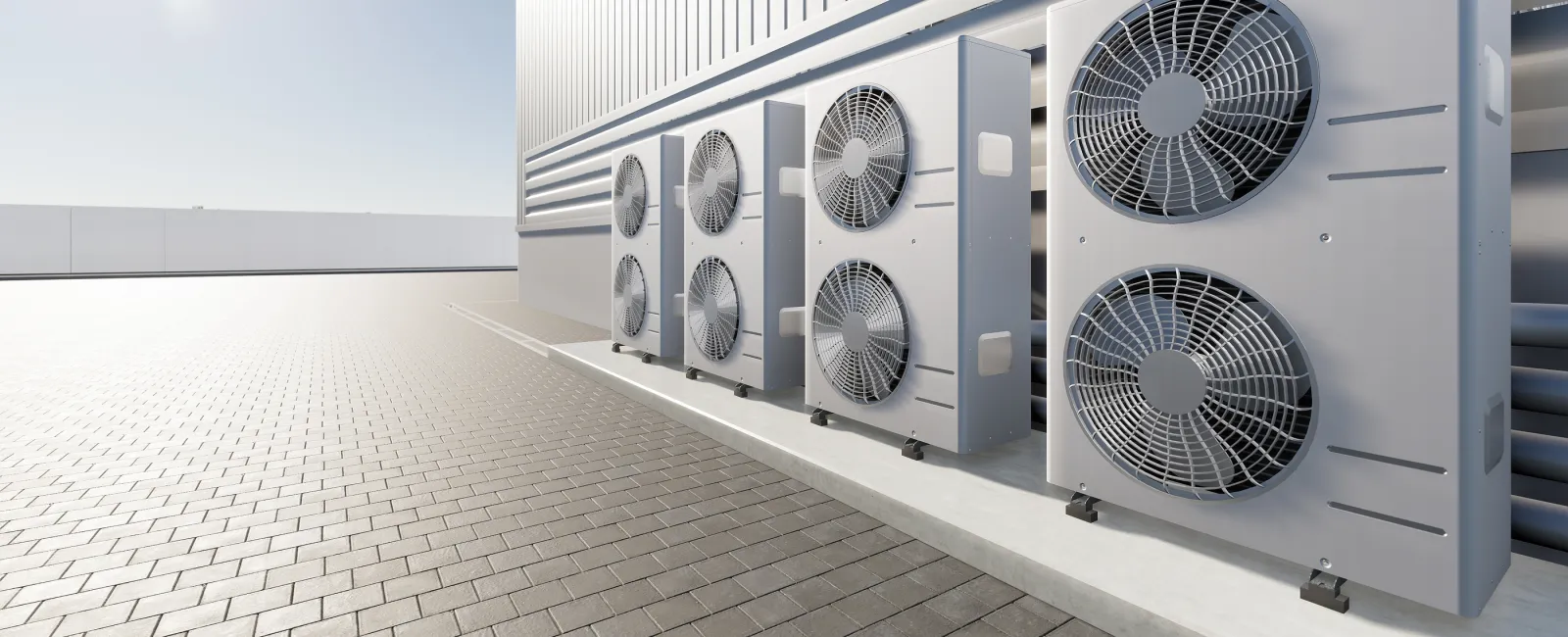Just How a Reputable HVAC System Boosts Indoor Air High Quality and Convenience
A trusted heating and cooling system is essential for keeping indoor air high quality and convenience. It regulates temperature and humidity, producing a healthier living setting. Reliable air purification eliminates pollutants and allergens, while proper humidity degrees avoid mold growth. Regular upkeep guarantees peak efficiency, enhancing system effectiveness. Comprehending these elements reveals just how they connect to create a fresh ambience. Nonetheless, the relationship between HVAC systems and total wellness goes much deeper than one might anticipate.
Comprehending the Fundamentals of HVAC Systems
Cooling and heating systems, basic for modern comfort, encompass air, heating, and air flow conditioning components that collaborate to manage interior settings. These systems are developed to keep perfect temperature levels, guaranteeing that spaces remain comfy regardless of outside weather conditions. Burner, such as heating systems or heat pumps, provide warmth throughout chillier months, while air conditioning units cool areas when temperatures rise.
Ventilation plays an essential function, helping with the blood circulation of fresh air and eliminating stale air, which aids in maintaining a well balanced environment. Various types of a/c systems exist, consisting of centralized and decentralized setups, each suited for different structure sizes and objectives. Furthermore, contemporary improvements have introduced smart modern technologies, enabling enhanced control over indoor climate. Understanding these fundamentals makes it possible for customers to appreciate just how HVAC systems add to overall health and convenience in commercial and property areas alike, laying the groundwork for conversations on their effect on interior air quality.
The Role of Air Filtration in Indoor Air Top Quality
A significant facet of maintaining interior air quality works air filtering, which plays a necessary duty in getting rid of toxins and allergens from the setting. A/c systems geared up with top notch filters can record a range of contaminants, including dust, pollen, pet dog dander, and mold spores. This filtering procedure greatly lowers the focus of air-borne fragments, bring about a cleaner and much healthier indoor environment.
Moreover, normal maintenance of air filters is vital to guarantee peak performance. Obstructed or unclean filters can hinder air flow, reducing the system's efficiency and potentially permitting pollutants to circulate within the area. By changing or cleaning up filters as recommended, house owners can boost their HVAC system's capability to give fresh air.
Moisture Control and Its Effect on Convenience
While many may concentrate on temperature policy, humidity control is similarly important for preserving convenience in interior settings. High humidity degrees can result in discomfort, making areas feel warmer than they really are, while low moisture can cause dryness, irritability, and increased susceptibility to respiratory system issues. A trustworthy HVAC system plays a substantial function in taking care of indoor humidity, guaranteeing that air is neither as well completely dry neither as well moist.
Optimal moisture degrees commonly range from 30% to 50%, advertising a comfy ambience. When moisture is well-regulated, residents experience enhanced thermal convenience, enhanced interior air top quality, and minimized dangers of mold growth and allergen expansion. Moreover, correct moisture control can protect furnishings and architectural components from damages caused by excessive dampness or dry skin. Consequently, incorporating efficient moisture management into cooling and heating systems is vital for fostering a pleasant and healthy and balanced indoor environment for wellness and productivity.
The Significance of Normal Maintenance
Routine upkeep of heating and cooling systems is important for guaranteeing peak efficiency and long life. This aggressive technique not only lessens potential break downs yet also improves power performance, which can result in substantial expense savings in time. Arranged assessments permit technicians to recognize and resolve concerns prior to they escalate right into pricey repairs, guaranteeing the system runs efficiently.
Furthermore, routine maintenance entails cleaning or replacing filters, checking refrigerant levels, and examining ducts, all of which add to ideal air flow and system performance. By preserving the cooling and heating system, property owners can additionally avoid excessive wear and tear on parts, expanding the overall lifespan of the system.
A well-maintained HVAC system runs silently and securely, decreasing the risk of dangerous scenarios. In verdict, routine upkeep is an essential investment in both the efficiency of HVAC systems and the comfort of interior settings, ultimately promoting a healthier space.

Just How A/c Equipment Reduce Allergens and Pollutants
Reliable cooling and heating systems play a vital function in reducing allergens and toxins within interior atmospheres, consequently improving general air quality. These systems utilize sophisticated purification modern technologies that record dirt, plant pollen, mold spores, and pet dander, avoiding them from flowing throughout the living room. High-efficiency particulate air (HEPA) filters are particularly effective, capturing approximately 99.97% of bits as small as 0.3 microns.

Power Performance and Its Advantages for Health and wellness
Energy-efficient a/c systems not only decrease energy intake however additionally have significant wellness benefits for owners. By maximizing power usage, these systems can preserve regular indoor temperatures, which helps protect against the development of mold and mold. Controlling moisture degrees is crucial for respiratory system wellness, as excess dampness can intensify allergies and asthma. Furthermore, energy-efficient systems often integrate advanced filtration technologies that improve air top quality by getting rid of airborne particles and pollutants, further boosting total well-being.
Lower power consumption means decreased exhausts from power plants, contributing to cleaner outdoor air top quality, which indirectly supports the wellness of homeowners. With an emphasis on sustainability, energy-efficient HVAC systems advertise a much healthier living atmosphere. By spending in such systems, homeowners not only save on energy bills yet also make a considerable dedication to the health and wellness of their families and communities. Ultimately, energy effectiveness in HVAC systems fosters a much healthier indoor environment for all.
Enhancing Comfort Via Smart Innovation Assimilation
As clever modern technology remains to advance, its integration into HVAC systems significantly enhances interior comfort. Smart thermostats, for instance, permit users to personalize heating and cooling timetables based upon their day-to-day routines, guaranteeing optimal temperatures when people are home. These gadgets can learn choices gradually, readjusting settings instantly for maximum convenience.
Wise sensing units check interior air quality HVAC experts and humidity levels, supplying real-time comments that assists maintain a healthy and balanced environment. By connecting with HVAC units, these sensors can motivate adjustments to air flow and temperature level, guaranteeing consistent convenience.
Mobile applications additional empower users, allowing remote control of heating and cooling settings from anywhere, thus offering ease and flexibility.
Frequently Asked Questions

Exactly How Can I Tell if My HVAC System Is Efficient?
To establish HVAC efficiency, one can inspect energy expenses for abnormalities, evaluate for uncommon noises, display temperature consistency, warranty appropriate airflow, and schedule regular maintenance. These factors jointly indicate the system's operational efficiency and performance.
What Indicators Indicate Poor Indoor Air High Quality?
Signs of bad indoor air top quality include consistent odors, excessive dust buildup, increased allergic reaction signs, visible mold development, and rising and fall humidity levels. These indicators often suggest that air flow or air filtration systems may be inadequate or malfunctioning.
Can an A/c System Assist With Animal Dander?

Just how Typically Should I Change My Air Filters?
Air filters ought to usually be replaced every 1 to 3 months, depending on usage and interior air quality. HVAC experts. Routine substitute aids maintain effective air flow and lowers dirt, irritants, and various other particles in the home environment
What Are the Expenses of Cooling And Heating System Installation?
The costs of heating and cooling system setup typically range from $3,000 to $7,000, depending on elements such as system type, home size, and regional labor rates. Extra functions may boost general costs considerably.
A reliable Cooling and heating system is vital for keeping indoor air high quality and convenience. Cooling and heating systems, essential for modern-day comfort, include air, heating, and ventilation conditioning components that work with each other to regulate interior settings. Effective HVAC systems play a crucial function in lowering allergens and contaminants within interior settings, therefore improving general air top quality. A Heating and cooling system can considerably lower family pet dander by using innovative filtering systems and routine upkeep (HVAC experts). The costs of HVAC system installation generally range from $3,000 to $7,000, depending on variables such as system kind, home size, and neighborhood labor rates